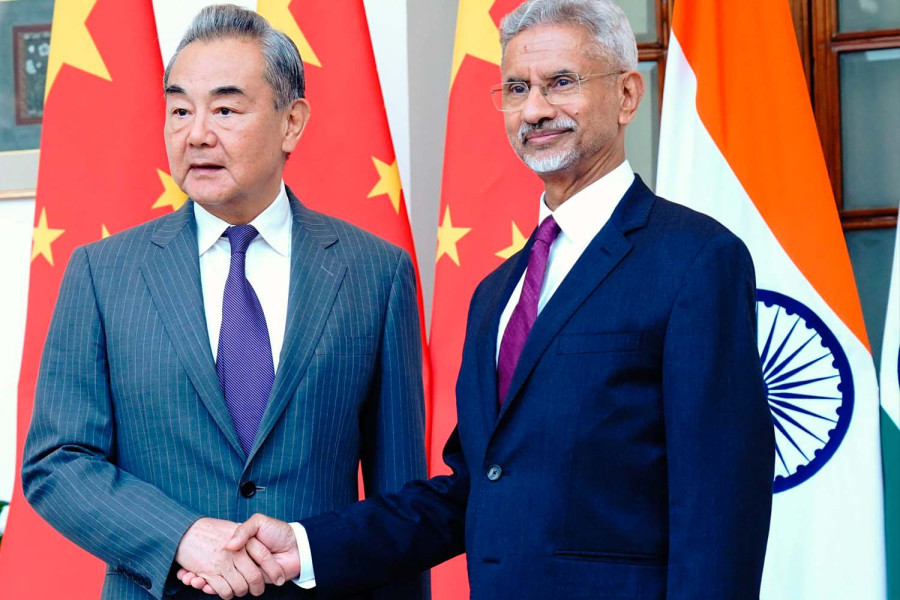Editorial
When friends betray
It hurts when India and China, Nepal’s supposedly closest friends, so openly undercut its interests.
Neither India nor China appear sensitive to the concerns of their precariously sandwiched neighbour. Their new agreement to re-open a bilateral trade route via Lipulekh Pass which runs through Nepali territories suggests as much. The 9th point of the August 19 agreement reads: “Both sides agreed to the re-opening of border trade through the three designated trading points, namely Lipulekh Pass, Shipki La Pass and Nathu La Pass”. Similar points have appeared in previous India-China agreements, most recently in 2015. That year, Kathmandu had dispatched separate diplomatic notes to New Delhi and Beijing expressing its concern. Mindful of Kathmandu’s stand on the matter, come 2025, the new agreement could have added a rider like “in consultations with Nepal in the case of Lipulekh.” Such a simple gesture would have gone a long way towards reassuring the landlocked state that its only two neighbours, as responsible members of the international community, would be mindful of Nepal’s territorial integrity and sovereignty as they look to boost their engagement. When they are at odds, for instance during the 1962 war, Nepal obviously loses. It was at that time that Indian military personnel occupied Nepali territories in Kalapani in order to maintain a close watch on Chinese troops. But Nepal, it appears, has to be wary even when India-China ties are on the mend.
There is a tendency in Nepal to paint either India or China as Nepal’s true friend. Our politics is likewise divided on which of these two countries is more reliable and more accepting of Nepal as a sovereign actor. India’s democratic credentials are often lauded, while China’s traditional ‘hands off’ policy is as often praised. But at the end of the day they both look after their own, self-defined interests. The Indian armed forces’ presence in Kalapani is an established fact. Nepal claims to have proof that Lipulekh, Limpiadhura and Kalapani all fall within its territory. Yet instead of trying to resolve these issues amicably with its ‘roti-beti’ neighbour, India has resorted to provocative moves like the 2019 publication of a new national map by including the territory of Kalapani. This in turn had prompted Nepal to issue its own ‘chucche’ map. China, meanwhile, appears mercantile, ready to compromise on Nepali interests if it is commercially beneficial to do so. It is now trying to shirk its part in undermining Nepal’s sovereignty by arguing that Lipulekh is something ‘bilateral’ to be settled between Nepal and India.
Boundary issues are notoriously difficult to settle, anywhere in the world, and Nepal too is not looking for quick fixes, especially with India. More than anything else, Nepal wants to be treated with the respect it deserves as a sovereign state. It hurts when its supposedly closest friends so openly undercut its interests. On Nepal’s part, there is no alternative to consistently raising the issue of Lipulekh, with both India and China, during bilateral talks at all levels. Only after exhausting all bilateral mechanisms should Nepal pursue other options, like internationalising the issue. We also trust our prime minister to raise Lipulekh during his upcoming bilateral talks with the leaders of India and China. The goal should be to make both the countries realise that, as rising powers, it is in their interest to first be seen as benign, trustworthy forces in the region.




 10.12°C Kathmandu
10.12°C Kathmandu













